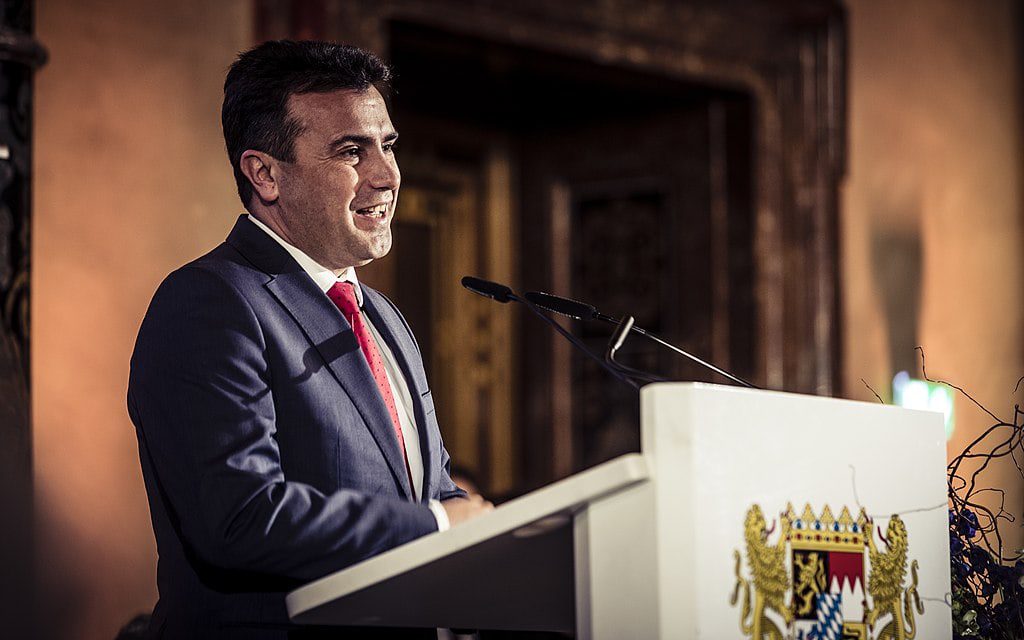
North Macedonia’s Prime Minister Zoran Zaev formally stepped down on Thursday, December 23rd, Radio Free Europe reports, but not before helping to secure the likely continuation of his party, the center-left Democratic Socialists, SDSM, to power.
Following disastrous local elections for his party in October, Zaev announced at the end of the month that he would resign as Prime Minister, though he didn’t formally submit his resignation until December 23rd. In the meantime, he led the coalition government through the threat of a no confidence vote to reinforce their slight majority in Parliament to 64 of the 120 seats. This avoided snap elections. The country’s president, Stevo Pendarovski, also a member of the SDSM, has ten days to appoint a Prime Minister, who must then ratify in a parliamentary vote by the end of January.
The center right opposition party VMRO-DPMNE (Internal Macedonian Revolutionary Organization – Democratic Party for Macedonian National Unity) is calling for elections.
Pendarovski is expected to appoint current Finance Minister Dimitar Kovacevski, who was elected the SDSM leader in Zaev’s place on December 13th. Kovacevski graduated from an American high school in Minnesota and is an economics professor at the American College in Skopje.
In his resignation letter, distributed to the media, Zaev said, “it would be politically irresponsible and unjustified … to continue to lead the country along the Euro-Atlantic path.” He also wrote that he hoped his resignation set an example to strengthen democracy in the country.
Zaev and his party first came to power in 2013, gaining control of the government after the previous ten-year rule of VMRO-DPMNE had become tarnished by scandal. During his first term Zaev negotiated the Prespa Agreement with Athens and oversaw the referendum to change the country’s name to North Macedonia, overcoming one of the primary obstacles to EU and NATO membership. Nevertheless, accession talks with the EU remained stalled in 2019 due to opposition from France and Bulgaria. After failing to open the talks, Zaev resigned as prime minister for the first time, sending the country to elections. In those elections, his party won narrowly over the center-right VMRO-DPMNE.
During his second term, Zaev negotiated North Macedonia’s NATO membership.
The newspaper European Western Balkans speculates that the recent losses of the SDSM is a backlash against the impasse in the EU accession process, as well as the government’s disappointing record on implementing reforms.
The country is due for regular election in 2024.
